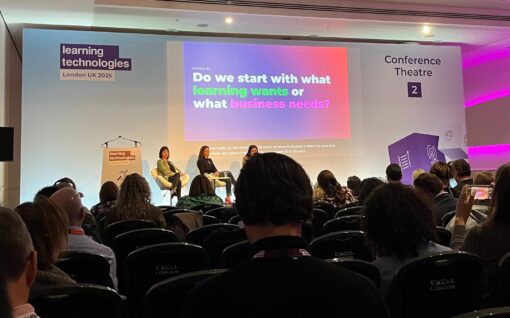
This recent tweet from Nick Shackleton-Jones serves as a reminder that marketing is not the answer to overcoming the learning and development and performance issues facing organisations.
It’s sometimes said that training has a lot to learn from marketing, and yet we succeeded in selling a whole series of products with very little value – all at high cost, so maybe not ☺️
— N Shackleton-Jones (@shackletonjones) November 2, 2019
Go to an L&D conference and you will likely see a session on why L&D teams need to think like marketers. There are indeed many things L&D can learn from marketing. But to jump to brand building and tactical campaign delivery runs the danger of doing what Shackleton-Jones warns against. And that is to build things that people don’t need.
Before creating a brand and marketing strategy for your internal L&D brand, consider a customer/stakeholder education strategy. By this I mean a plan to educate the business on how L&D can help it achieve its goals.
Why does this matter? Because the way L&D works now is so much different to 10 or 20 years ago. And yet, many senior teams continue to believe that L&D operates in the way it always has. They cherish their week away on leadership programmes or innovation challenges. They want to keep hold of these types of events. But L&D has moved on and many, many L&D professionals want to change the way they conceive and deliver L&D in their organisations.
However, without the understanding of how L&D has changed it is hard to get support from the very people who can positively influence the adoption of new ways of doing things. That’s why you need an education strategy first. This provides learning teams with the opportunity to envisage a new way of delivering L&D to support business goals. Once your stakeholders understand and support this new vision for L&D, then you can think about building your new L&D brand and the products and services it will offer. And even in the product building phase you have another opportunity to engage employees around the new ways of L&D. For example, design thinking is a great process for co-creating solutions with and for your customers, taking them with you as you test and iterate.
The process of engaging stakeholders with a new vision for L&D does more than educate. It also helps build your team’s credibility through demonstrating your subject expertise. Doug Shaw and I used the World Cafe method at the Learning Technologies Summer Forum to showcase how such a method can be used to engage and educate people, to provide a space to question, discuss and share thinking – in short, educate – around a topic.
Marketing skills are useful to L&D teams but before you jump into learning them, ensure you educate the organisation on what constitutes L&D in 2019 and beyond.
Final note: this same thinking applies to learning suppliers. Often there is a need to educate a customer’s stakeholders in how L&D is changing and where your product or service fits into the new landscape. You can facilitate these types of discussions.

